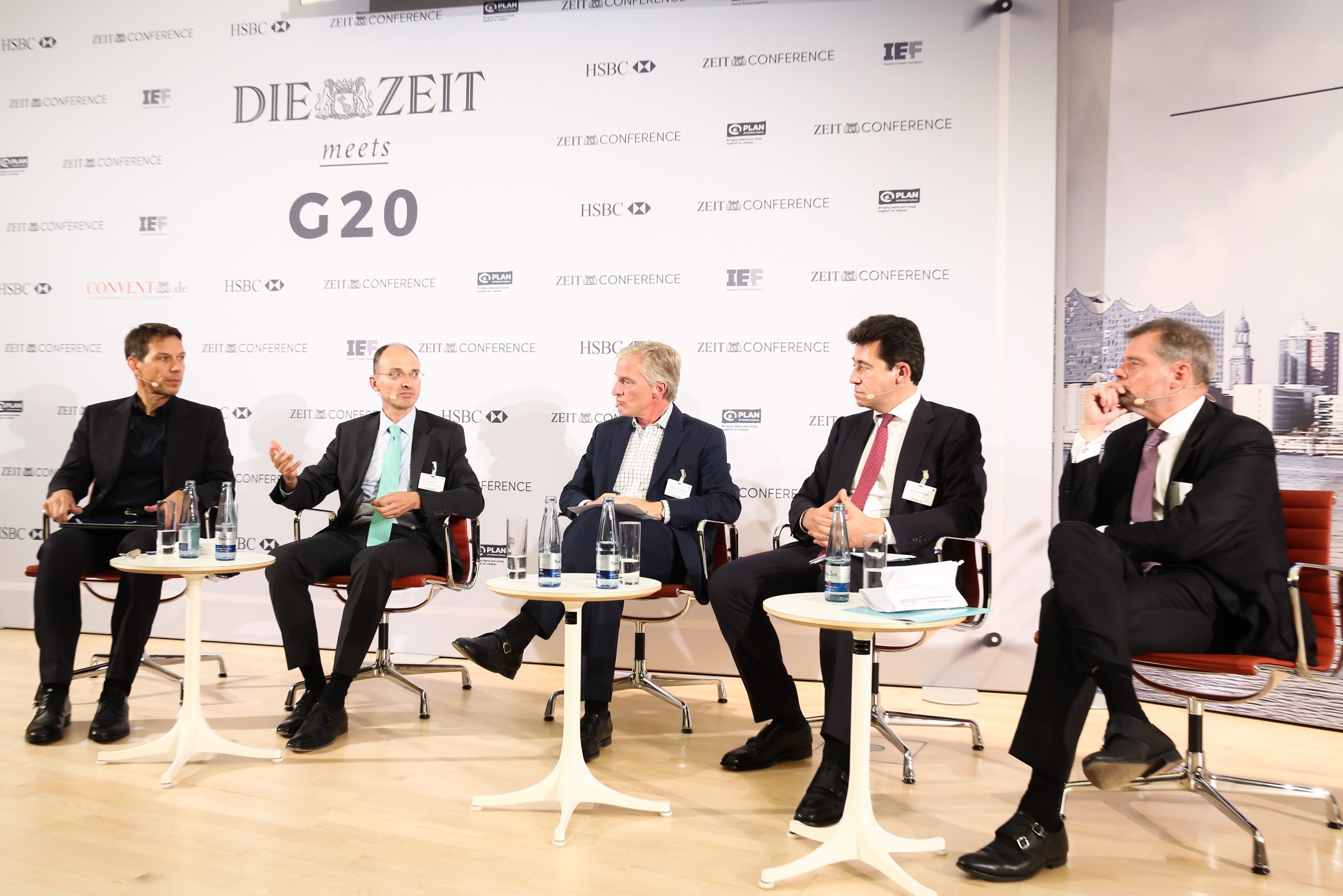The day before this year’s G20 Summit, many leading figures from politics and society gathered in the host city of Hamburg to debate the pressing issues on the global agenda. A daylong event hosted by Die ZEIT featured a wide range of panels on topics of economic development, social justice, the environment and finance, and noteworthy speakers included German Finance Minister Wolfgang Schäuble and International Monetary Fund President Christine Lagarde.
As part of this unique forum, the IE.F presented a panel dedicated to a range of digital economic issues, including the changing nature of work in the age of Artificial Intelligence; the tech financing gap between Europe, the US and Asia; the need for better broadband access and digital education across the globe; and the rise of monopolistic Internet platforms and how to prevent market abuse. IE.F Chairman Professor Friedberg Pflüger moderated the lively session, which you can watch in its entirety here:
Session IV: Digitalization & Development

Source: Convent Kongresse GmbH
The importance of digitalization and development in Africa was highlighted by Jan Waliser, Vice President of the World Bank, who worked many years there. He told of public-private partnerships in countries like Sierra Leone or Burundi, where digital infrastructure was built under the condition that broadband cables were made openly accessible and that no monopolies are allowed.
Charles-Édouard Bouée, CEO of Roland Berger looked at Europe and its chances in the digital economy, noting that “the battle for apps and platforms is almost lost. But we have the chance to win the market battle for the Internet of Things and Artificial Intelligence, if companies and countries work together.”
In order to not lose further ground, Magnus Graf Lambsdorff, a Partner at Lakestar Advisors, appealed to Europe’s political class to act. “Politicians have to wake up and create a framework whereby much more capital flows into modern companies.”
René Obermann, Managing Partner at Warburg Pincus, also encouraged Europe to take decisive action. “We have to allow innovation. With more public funds for joint investments in public-private-partnerships, we could develop young companies more quickly.”